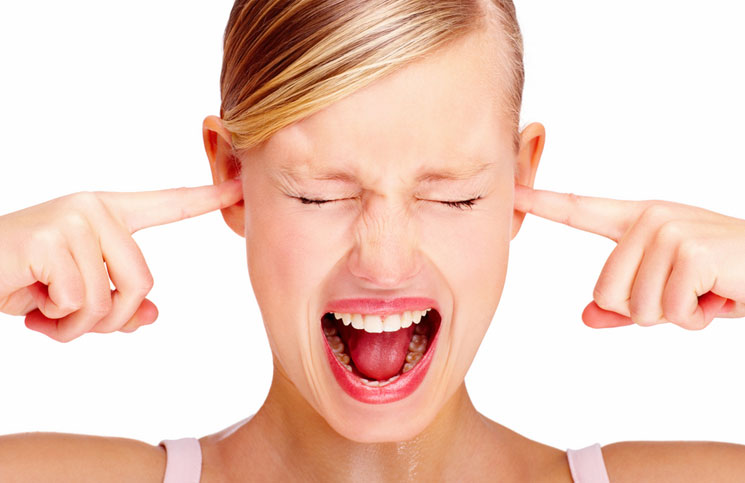Tinnitus – The Phantom of the Ear

Remember that saying “You don’t know what you have until its gone”? I’m not sure where it originated but we all learned it’s meaning during the COVID-19 pandemic of 2020. For many of us our busy social lives shrunk down to the quiet contained in the four walls of our homes. Of course, for those suffering from tinnitus they long for the silence that was now altogether gone or rare. Gone were the days when they could sit in their favorite chair reading a book or crawl into bed knowing sleep was seconds away. As now in these serene environments the Phantom of the Ear sneaks up without warning and many times without mercy.
Who Suffers From Tinnitus
Tinnitus, that phantom sound only you can hear, affects 45 million Americans according to the American Tinnitus Association. About 90 percent of those experiencing tinnitus also have an underlying hearing loss. This hearing loss is most commonly related to noise exposure which is why musicians today wear hearing protection when performing.
But that was not always the case. Pete Townshend from The Who believes his tinnitus is the result of a concert at Charlton FC in London, which according to the Guinness Book of Records was the loudest concert ever. Neil Young also suffers from hearing loss and tinnitus as does William Shatner. Shatner feels his tinnitus resulted from an on-set accident during the filming of Star Trek.
Archaic Theory and Treatment
Tinnitus has been around for many years and people have been trying to cure it for just as long. Pliny the Elder, a Roman writer, recommended earthworms boiled in goose grease be put in the ear to cure tinnitus. As disgusting as that seems it might be preferable to the treatment administered by early physicians. They believed tinnitus was due to air trapped in the ear that was swirling around constantly. To release this air they would drill a hole into the bones around the ear.
Understanding Tinnitus
These ancient remedies assumed that tinnitus was resulting from the ear, however since the mid-1990s the theories on where and how tinnitus is generated shifted from the ear to the brain mainly because people who were deaf or had their hearing nerve cut would still report tinnitus. Today researchers around the world are trying to pinpoint how and where tinnitus is generated and find a treatment or cure for it. The theories and treatments are diverse and dependent on the cause of your specific tinnitus. Yet, despite the cause research has shown changes in various parts of the brain in those suffering from tinnitus. Specifically the limbic system which controls our emotions.
Managing Your Tinnitus
It’s important to mention that currently there is no clinically proven way to eliminate or cure tinnitus, and the FDA has not approved any medication for the treatment of tinnitus. However, research has identified things that can reduce the perceived intensity of the tinnitus.
Remember tinnitus is a symptom, not a diagnosis. Prior to treating your tinnitus, we need to find the origin of it. As I mentioned earlier 90 percent of people experiencing tinnitus have an underlying hearing loss so a logical first step would be to see your audiologist. A comprehensive hearing evaluation will look to see if the ear is clear of wax, if the middle ear is working without obstructions, and whether there is hearing loss.
For the other 10% whose tinnitus is not related to hearing loss an appointment with your primary care doctor may shed light on what is causing it. Many medications can have the side effect of tinnitus, however there are also non-ear related conditions that have been linked to tinnitus such as trauma to the head or neck, Temporomandibular Joint Disorder (TMJ), sinus pressure or congestion, autoimmune disorders, metabolic disorders, high blood pressure, and psychiatric ailments such as depression or anxiety disorders.
Tinnitus Related to Hearing Loss
Tinnitus related to hearing loss is thought to be due to neuro-plastic changes in the brain. A survey of hearing professionals found that 60% of their patients with both tinnitus and hearing loss found relief from the tinnitus when wearing hearing aids. Isn’t it funny how sometimes the most direct and obvious route is the best. By having amplification, the listener’s attention is diverted to other sounds in the environment and away from their tinnitus.
The American Tinnitus Association used the visual below to illustrate how hearing aids can help to mask or reduce the effects of tinnitus through hearing aids. Picture A represents a person with untreated hearing loss and tinnitus. The environmental sounds are indistinct making the tinnitus, represented by the cricket, more pronounced. Picture B represent the same person wearing a hearing aid. Now even though the tinnitus (cricket) is still there the clarity of the other environmental sounds makes it less noticeable.

Tinnitus Related Other Health Conditions
If your hearing is normal your tinnitus may be related to hypertension, depression, anxiety, or Meniere’s Disease. For these making some lifestyle changes with diet and exercise can help. Some people feel that caffeine, alcohol, or salty foods exasperate their tinnitus so keeping a food diary could help find a trigger if there is one. Also, making healthier choices when it comes to food can reduce hypertension, increase blood flow, heighten your energy level and just improve your overall well-being which in turn could alter your emotional response to the tinnitus.
Likewise, exercise not only can reduce weight and stress levels but also can create a diversion away from the tinnitus. What exercise is best depends on you. Practicing yoga or other exercises that involve relaxation or meditation can help to reduce stress and possibly the perception of tinnitus; whereas some say the wind noise while biking helps to mask the tinnitus and give at least temporary relief from it. But, keep in mind noise exposure leads to hearing loss and tinnitus. So, no matter what exercise you choose be cautious of the music volume while you are working out so you do not end up exasperating the tinnitus.
Tinnitus Maskers
Tinnitus maskers are a common strategy for treating tinnitus as they are readily available and inexpensive. The goal is to create another more pleasant sound in the environment for you to focus on instead of your tinnitus. If you have a hearing aid it may have a tinnitus masker built-in which can easily be turned on by your audiologist. If you do not wear hearing aids you can download a tinnitus masking app on your smartphone or turning on a CD with soothing music or environmental sounds.
For more severe tinnitus a better but more expensive option would be a notched-music or pitch matching device. These devices customize the sounds around the frequency of your tinnitus in an attempt to disrupt the abnormal neural firing in the auditory cortex. Reported results on these devices can vary but several studies show patients that follow the program report less perceived tinnitus at the end of the program.
Behavioral Therapy
If the above treatments do not offer you enough relief then you may want to consider behavioral therapy. Behavioral therapy focuses on someone’s emotional reaction to their tinnitus and helps them develop coping mechanisms to reduce the internal attention given to the tinnitus. This is accomplished by learning relaxation techniques and completing cognitive training to find more positive ways of thinking about the tinnitus. Behavioral therapy has consistently been shown to reduce individuals perceived severity of tinnitus as well as reduce tinnitus-related anxiety and depression.
Tinnitus thought to be related to psychological conditions such as anxiety, depression, or obsessive compulsive disorder can occasionally be treated with antidepressants or antianxiety medications. However, I want to again be clear that there are currently no FDA approved drugs for the treatment of tinnitus. That being said if your tinnitus is severe and related to a psychological ailment your doctor may prescribe one of these medications. The hope is that these medications would reduce the negative emotions or the psychological burden of the tinnitus.
You’re Not in This Alone
With so many options and such mixed reviews it can be hard to know what is best for you. Which is why you should start with a visit to your doctor and audiologist. They will help you find the root cause of your tinnitus and guide you in finding the right treatment for you.